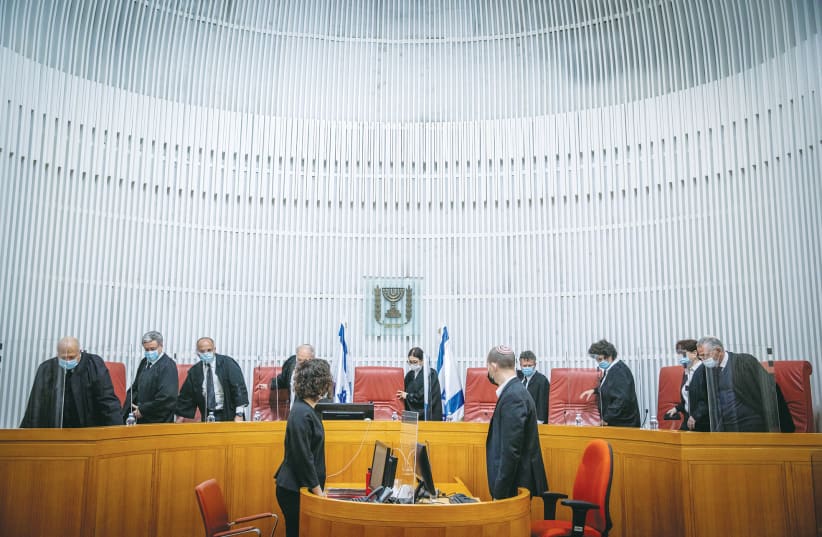The decision does honor to the country’s identity as a Jewish and democratic state.
While the practical impact of the High Court decision is minimal, affecting perhaps 30 individuals per year, its symbolic impact is quite significant.
One of the central factors in the growing Israel-Diaspora divide is the fact that Israeli law frequently negates the way American Jews, who make up 75% of Diaspora Jewry, observe Judaism. Over half of American Jews identify as either Conservative or Reform, while fewer than 15% self-identify as Orthodox.
Rather than setting the standard for Jewish peoplehood, Israeli government policies that recognize Jewish marriage and divorce only if conducted according to Orthodox Jewish law alienate millions of American and other Diaspora Jews. The March 1 High Court decision unifies the Jewish world, at least with respect to the definition of who is a Jew for the purposes of Israeli citizenship.
Equally important is the fact that the High Court’s decision chips away at the antiquated and unfair hegemony of the Chief Rabbinate of Israel. While the rabbinate continues to control issues of personal status such as marriage and divorce for Israeli Jews, this decision means that it no longer has the power to define who is a Jew with respect to Israeli citizenship.
We do not advocate the abolition of the Chief Rabbinate; it can serve as an important symbol of the Jewish state. Nevertheless, we hope that this chink in the armor of the rabbinate will augur further weakening of its control over the personal status of Israelis, ultimately resulting in a pluralistic and inclusive Judaism in Israel that more closely matches that of the Diaspora. It should not be that a Jew has less religious freedom in the Jewish state than in America or elsewhere in the free world.
The reaction from haredi politicians in Israel to the High Court’s ruling has been swift, caustic and defamatory, leading to fears that the Knesset, held hostage by powerful haredi political parties, will pass legislation that invalidates the court’s pathbreaking decision.
Indeed, haredi politicians have gone so far as to label Conservative and Reform Jews as no better than dogs, thereby borrowing an epithet that was a favorite of the Nazis.
However much they might disagree with the Conservative and Reform movements, in applying such vicious insults, haredi leaders are violating a basic principle of Halacha – to which they purportedly adhere – namely, that a Jew remains a Jew regardless of his or her religious practice or lack thereof.
The American Jewish Committee calls upon the Knesset to maintain the integrity of this important ruling. The High Court did not make this decision lightly; indeed, it took 15 years to rule on this case, because it preferred that the issue be addressed by the legislative branch of government. Given haredi political power, however, a fair-minded legislative outcome was not to be.
The Knesset must not cave to the demands of those who represent a small minority of the Israeli population and an even smaller minority of the Jewish people, but, rather, must uphold the decision of the highest court in the nation. A free and independent judiciary is critical to a functioning democracy. Those who would seek to weaken the power of the High Court would do violence to this central element of Israeli democracy.
If Israel is to see itself as the Jewish homeland, it must be inclusive of the wide range of Jewish affiliations and observances in the Jewish world.
We hope that this landmark High Court decision is a harbinger of change that will unite the Jewish people rather than alienate and embitter the millions of Jews who continue to reside in the Diaspora.
Dov S. Zakheim is a member of the American Jewish Committee’s board of governors and chairman of the Jewish Religious Equality Coalition. Laura Shaw Frank is director of AJC’s William Petschek Contemporary Jewish Life Department.
